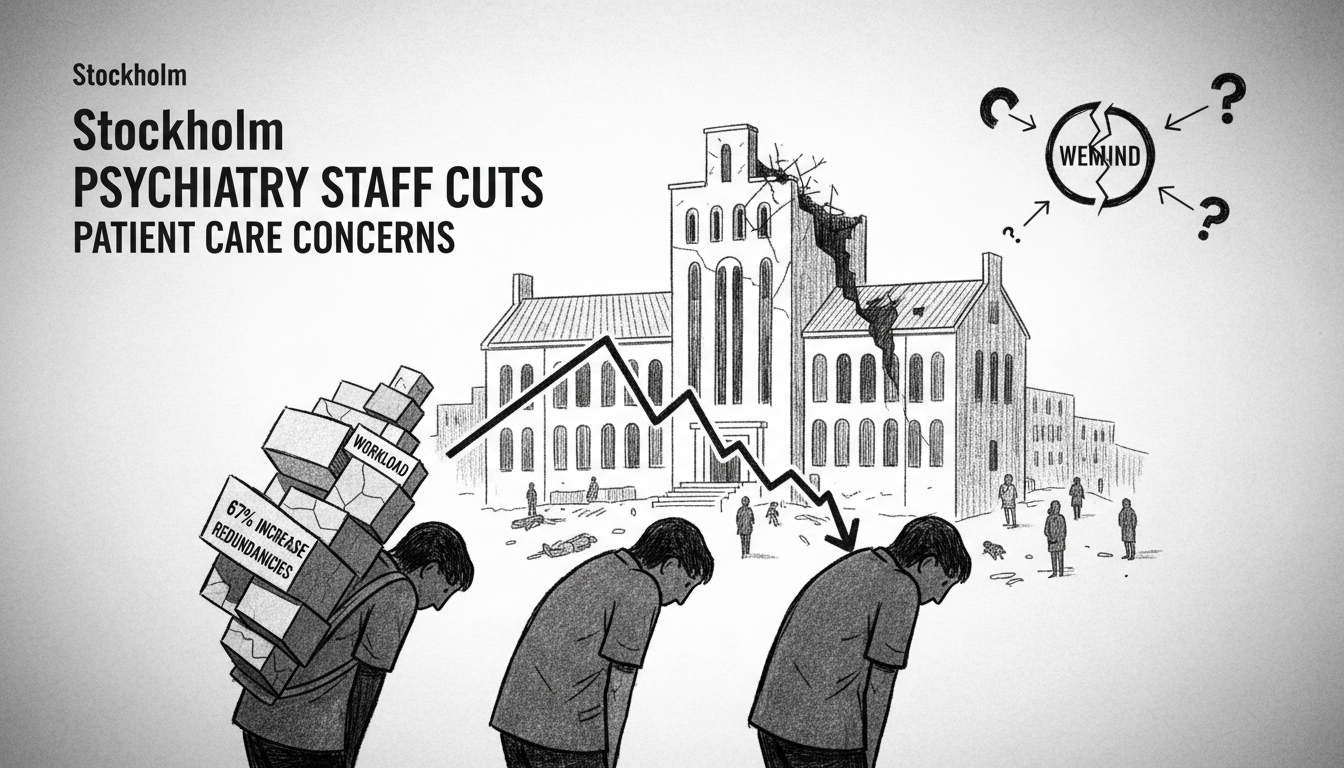Stockholm's psychiatric care system faces turbulence after private provider Wemind took over adult specialist outpatient services in September. The company now manages care in Barkarby, Sundbyberg, Järfälla, and the Järva area. This transition follows new healthcare agreements that took effect in the third quarter.
Wemind ranks among Sweden's largest private psychiatric care providers. The company generates over 500 million kronor annually. Critics questioned the procurement process from the beginning. The winning bid for these Stockholm areas came in at just over 107 million kronor. The previous provider and political opposition claim this represents a 60 percent budget reduction in practice.
Recent weeks brought staff redundancy notices in Kista and Rinkeby clinics. Negotiations continue but sources indicate at least 17 positions in Rinkeby and 11 in Kista face elimination. Haninge also experiences staff reductions according to union reports.
Maria Lindblom leads the Healthcare Union's Stockholm division. She finds the staffing cuts contradictory. 'Workload has increased by up to 67 percent for our members,' Lindblom stated. 'Claiming there's insufficient work seems strange under these conditions.'
Political opposition joins the criticism. The Christian Democrats want to cancel the procurement entirely. Patients already report care quality changes. One patient named Emma described how her treatment experience deteriorated since the transition.
Wemind CEO Urban Pettersson Bargo responded via email. He called their work 'extensive and long-term' and noted ongoing dialogue with regional healthcare authorities. 'We currently focus all attention on internal discussions with managers and employees,' Pettersson Bargo wrote.
Stockholm's healthcare administration supports the staff reductions. Officials describe the decision as positive because staffing levels remain adequate. Department head Christoffer Bernsköld called the move 'an efficient and responsible use of tax funds.'
This situation highlights Sweden's ongoing debate about privatized healthcare. Private companies increasingly manage public services despite concerns about cost-cutting affecting quality. The Stockholm region divides healthcare management between its own organization and private contractors across different zones.
What comes next for patients like Emma? Healthcare unions plan continued protests. Political opposition promises to raise the issue in regional council meetings. The real test will emerge over coming months as patients either receive quality care or experience service decline.
Mental healthcare access remains crucial in Sweden's largest urban area. Stockholm residents will watch closely whether cost savings come at the expense of vulnerable patients.
